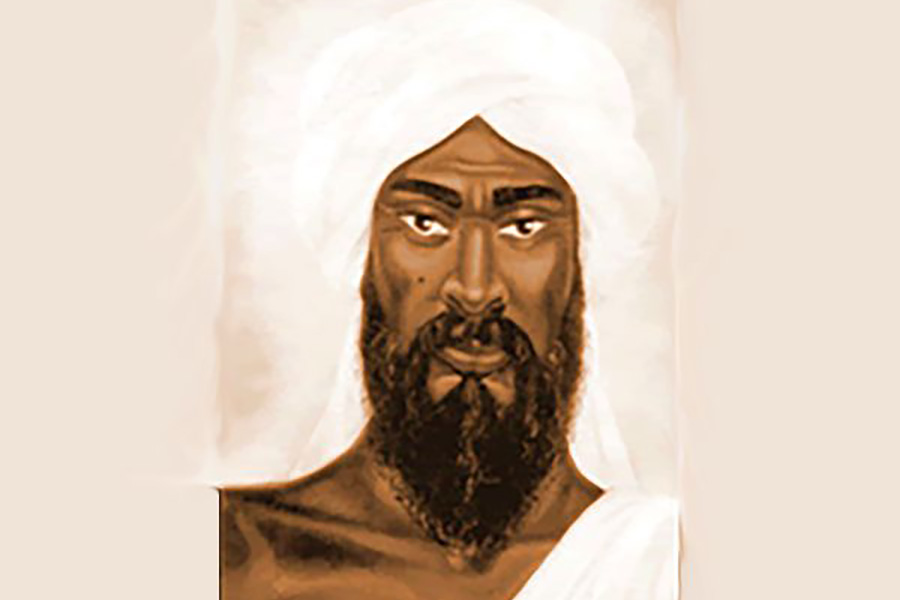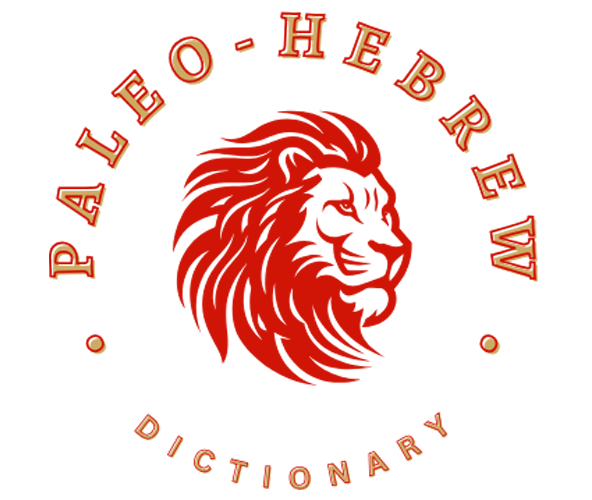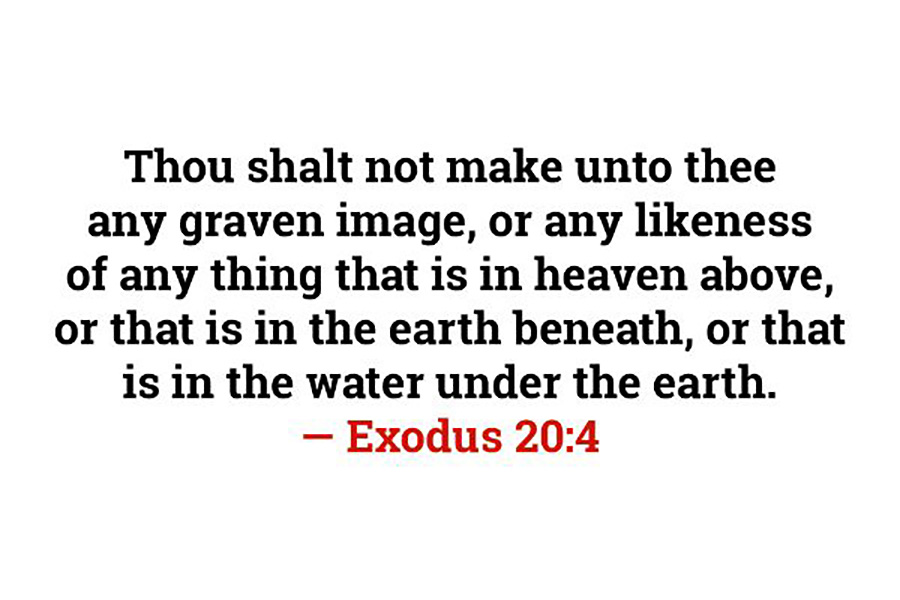The word tarakh (𐤕𐤓𐤇) or “Terah” is associated with two meanings. The first meaning is that of “wanderer” meaning someone who goes aimlessly, indirectly, or casually; meander. The last association of the word is the 𐤁𐤍 (ban) of 𐤍𐤇𐤅𐤓 (Nakhauar) and 𐤀𐤁 (ab) of the patriarch 𐤀𐤁𐤓𐤄𐤌 (Abaraham). As such, he is a descendant of 𐤔𐤌 (Sham)’s 𐤁𐤍 (ban) 𐤀𐤓𐤐𐤊𐤔𐤃 (Arapakashad).
The Paleo-Hebrew language or the original language of the Ābarayam is one spoken with an emphasis on the rauakh (breath, wind, spirit). With the language of the Ābarayam, each letter has a meaning and a number associated with it that adds meaning to each word they’re used with. Below you will be able to learn more about the letter in Ancient Hebrew, Yiddish Hebrew, Greek, and much more.
Letter Meanings
| Letter | Meaning |
|---|---|
| 𐤕 (t) – ta | mark, sign, covenant, signature, identification of people, places, or things |
| 𐤓 (r) – ra | head and person, man, beginning, top, rule, inheritance, possession |
| 𐤇 (kh) – kha | tent wall, fence, separation, divide, abdomen, belly |
| Ābarayat Number | |
| Hebrew Gematria | |
| English Gematria | |
| Simple Gematria |
Based on the meaning of the letters the word could be defined as:
- “covenant of beginning fence (protection)”
- “covenant of beginning separation (set-apart)”
- “covenant of beginning division”
- “covenant inheritance fence (protection)”
- “covenant inheritance separation (set-apart)”
- “covenant inheritance division”
Definitions for 𐤕𐤓𐤇 / tarakh
| Language | Word | Transliteration | Pronunciation | Definition |
|---|---|---|---|---|
| Ābarayat | 𐤕𐤓𐤇 | tarakh | ta-rakh | Abaraham’s father, also a place in the desert |
| English | Terah | Terah | ter-ah | the father of Abraham. Genesis 11:25–32. |
| Hebrew | תֶּרַח | Terach | teh’-rakh | |
| Arabic | تارح | Tarah | taw-reeh | Tarah |
| Greek | Θάρα | Thara | thar’-ah | Terah, the father of Abraham. |
The Scriptures
He is said to have had three 𐤁𐤍𐤉𐤌 (banayam): 𐤀𐤁𐤓𐤌 (Abaram) [better known by his later name 𐤀𐤁𐤓𐤄𐤌 (Abaraham)], 𐤇𐤓𐤍 (Kharan), and 𐤍𐤇𐤅𐤓 𐤁 (Nakhauar 2). The family lived in 𐤀𐤅𐤓 (Aauar) of the 𐤊𐤔𐤃𐤉 (Kashaday). One of his grandchildren was 𐤋𐤅𐤈 (Lauath), whose 𐤀𐤁 (ab), 𐤇𐤓𐤍 (Kharan), had died at 𐤀𐤅𐤓 (Aauar).
In the Book of 𐤉𐤄𐤅𐤔𐤏 (Yahauashaā), in his final speech to the 𐤉𐤔𐤓𐤀𐤋𐤉 (Yasharaalay) leaders assembled at 𐤔𐤊𐤌 (Shakam), 𐤉𐤄𐤅𐤔𐤏 (Yahauashaā) recounts the history of 𐤉𐤄𐤅𐤄 (Yahauah) / 𐤉𐤄𐤉𐤄 (Yahayah)’s formation of the 𐤉𐤔𐤓𐤀𐤋𐤉 (Yasharaalay) nation, beginning with “Terah the father of Abraham and Nahor, [who] lived beyond the Euphrates River and worshiped other gods.”
The Journey
𐤕𐤓𐤇 (Tarakh) took his family and left 𐤀𐤅𐤓 (Aauar) of the 𐤊𐤔𐤃𐤉 (Kashaday) to move to the land of 𐤊𐤍𐤏𐤍 (Kanaān). He set out for 𐤊𐤍𐤏𐤍 (Kanaān) but stopped in the city of 𐤇𐤓𐤍 (Kharan) along the way, where he died. After his death, it was 𐤀𐤁𐤓𐤌 (Abaram) who picked up the torch to continue his 𐤀𐤁 (ab)’s quest, which he himself was unable to achieve.
The significance of his not reaching 𐤊𐤍𐤏𐤍 (Kanaān) was a reflection of his character, a man who was unable to go “all the way”. Although on a journey in the right direction, he fell short of arriving at the divine destination—in contrast to 𐤀𐤁𐤓𐤌 (Abaram), who did follow through and achieved the divine goal and was not bound by his 𐤀𐤁 (ab)’s idolatrous past. 𐤀𐤁𐤓𐤌 (Abaram)’s following The Most High’s command to leave his 𐤀𐤁 (ab), thus absolved him from the 𐤌𐤑𐤅𐤄 (matsauah) of honoring parents, and as 𐤀𐤁𐤓𐤄𐤌 (Abaraham), he would go on to create a new lineage distinct from his ancestors.
Islamic Traditions
In Islam, 𐤀𐤁𐤓𐤌 (Abaram)’s 𐤀𐤁 (ab) is believed to have been a disbelieving man, due to his refusal to listen to the constant advice of his 𐤁𐤍 (ban). In fact, the earliest story involving 𐤀𐤁𐤓𐤌 (Abaram) in the Quran / 𐤒𐤅𐤓𐤀𐤍 (Qauaraan) is his discussion with his 𐤀𐤁 (ab). The 𐤒𐤅𐤓𐤀𐤍 (Qauaraan) states that the people of 𐤀𐤁𐤓𐤌 (Abaram) were idolaters. When 𐤀𐤁𐤓𐤌 (Abaram) was a young boy, he decided to finally teach his community a lesson. He said to himself that he had a plan for their idols, whilst they would be gone away.
The 𐤒𐤅𐤓𐤀𐤍 (Qauaraan) goes on to narrate that 𐤀𐤁𐤓𐤌 (Abaram) subsequently broke the idols, all except the largest, which he kept intact. After the incident of the idol wreckage, the people of 𐤀𐤁𐤓𐤌 (Abaram), while having admitted their fault, are said to have ignored 𐤀𐤁𐤓𐤌 (Abaram)’s warning and instead retaliated by throwing him into a fire and exclaiming “protect your gods”. Although the natural nature of fire is one of intense heat, The Most High commanded the flame to be cool and peaceful for 𐤀𐤁𐤓𐤌 (Abaram). 𐤀𐤁𐤓𐤌 (Abaram), as a result, remained unhurt both physically and spiritually, having survived the fire of persecution.
Genealogy
| Generation | Direct Lineage | Sibling Lineage |
|---|---|---|
| 1st Generation | 𐤍𐤅𐤇 (Nauakh) | |
| 2nd Generation | 𐤔𐤌 (Sham) | 𐤉𐤐𐤕 (Yaphat) 𐤇𐤌 (Kham) |
| 3rd Generation | 𐤀𐤓𐤐𐤊𐤔𐤃 (Araphakashad) | 𐤏𐤉𐤋𐤌 (Āyalam) 𐤀𐤔𐤇𐤅𐤓 (Ashakhauar) 𐤋𐤅𐤃 (Lauad) 𐤀𐤓𐤌 (Aram) |
| 4th Generation | 𐤔𐤋𐤇 (Shalakh) | |
| 5th Generation | 𐤏𐤁𐤓 (Ābar) | 𐤉𐤒𐤈𐤍 (Yaqathan) |
| 6th Generation | 𐤐𐤋𐤂 (Phalag) | |
| 7th Generation | 𐤓𐤏𐤅 (Raāu) | |
| 8th Generation | 𐤔𐤓𐤅𐤂 (Sharauag) | |
| 9th Generation | 𐤍𐤇𐤅𐤓 (Nakhauar) | |
| 10th Generation | 𐤕𐤓𐤇 (Tarakh) | |
| 11th Generation | 𐤀𐤁𐤓𐤌 (Abaram) 𐤇𐤓𐤍 (Kharan) 𐤍𐤇𐤅𐤓 𐤁 (Nakhauar 2) 𐤔𐤓𐤉 (Sharay) |
Images for 𐤕𐤓𐤇 / tarakh


Maps for 𐤕𐤓𐤇 / tarakh

Definitions for /
When adding the 𐤉 (yad) to the end of a word, it creates a possessive of the original word. It can either signify “my…” or identify a member of a nation. For example, 𐤏𐤁𐤓 (Ābar) is the progenitor, but 𐤏𐤁𐤓𐤉 (Ābaray) is the singular descendant of him also known as a Hebrew.
| Language | Word | Transliteration | Pronunciation | Definition |
|---|---|---|---|---|
| Ābarayat | ||||
| English | ||||
| Hebrew | ||||
| Arabic | ||||
| Greek |
Images for /


Definitions for /
When adding the 𐤌 (mayam) after the 𐤉 (yad) to the end of a word, it creates a plural of the original word. It can identify multiple members of a nation. For example, 𐤏𐤁𐤓 (Ābar) is the progenitor, but 𐤏𐤁𐤓𐤉𐤌 (Ābarayam) are the plural descendants of him also known as Hebrews.
| Language | Word | Transliteration | Pronunciation | Definition |
|---|---|---|---|---|
| Ābarayat | ||||
| English | ||||
| Hebrew | ||||
| Arabic | ||||
| Greek |
Images for /


Definitions for /
When adding the 𐤕 (tau) after the 𐤉 (yad) to the end of a word, it creates a plural of the original word. It identifies the language or a sign of a nation’s existence. For example, 𐤏𐤁𐤓 (Ābar) is the progenitor, but 𐤏𐤁𐤓𐤉𐤕 (Ābarayat) is the language of him also known as Paleo-Hebrew language.
| Language | Word | Transliteration | Pronunciation | Definition |
|---|---|---|---|---|
| Ābarayat | ||||
| English | ||||
| Hebrew | ||||
| Arabic | ||||
| Greek |
Images for /
| Character | Name | Transliteration | Pronunciation |
|---|---|---|---|
Classification
You can continue your studies of the words by viewing Strong’s entries for:




